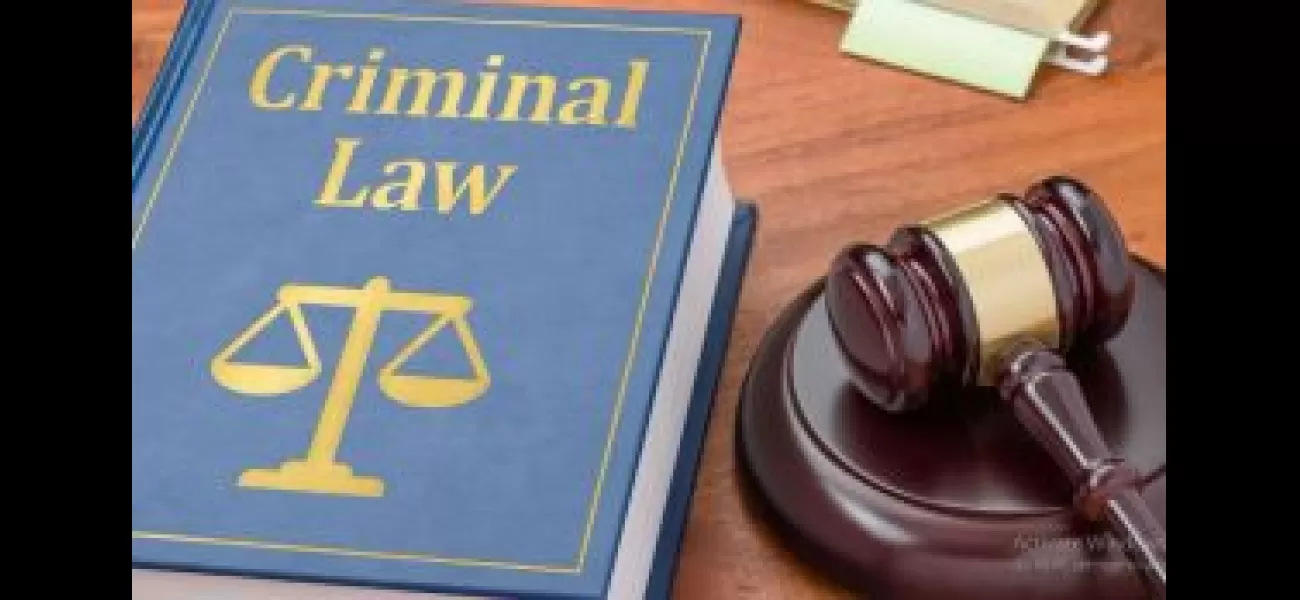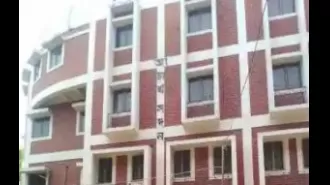3,695 people signed petition asking leaders to stop new laws from being enforced.
A petition with 3,695 signatories is urging political leaders in India to prevent the implementation of new criminal laws that are considered "anti-democratic."
June 19th 2024.

A recent petition has been making waves in the political realm of India, garnering the support of 3,695 concerned citizens. The petition urges leaders of the INDIA bloc and various National Democratic Alliance partners to intervene and prevent the implementation of new criminal laws that have been deemed as "anti-democratic."
Notable figures such as Tushar Gandhi, Tanika Sarkar, Henri Tiphagne, Major General Sudhir Vombatkere, Teesta Setalvad, Kavita Srivastava, and Shabnam Hashmi are among the prominent signatories of the petition. Addressed to Andhra Pradesh Chief Minister N Chandrababu Naidu, Bihar Chief Minister Nitish Kumar, and Rashtriya Lok Dal chief Jayant Chaudhary, the petition has also been sent to key figures in various political parties, including Congress president Mallikarjun Kharge, Communist Party of India general secretary Sitaram Yechury, and Aam Aadmi Party national convener Arvind Kejriwal.
The petitioners are calling for a thorough investigation by a Joint Parliamentary Committee, consultation with legal experts, and a thorough debate in the Parliament regarding the new criminal laws. They stress the importance of safeguarding the democratic values enshrined in the Constitution and protecting the democratic rights of citizens.
The petition raises serious concerns about three new laws - Bharatiya Nagarik Suraksha Sanhita, 2023, Bharatiya Nyaya Sanhita, 2023, and Bharatiya Sakshya Adhiniyam, 2023 - which were pushed through the Parliament on December 20, 2023, without proper debate and are set to take effect on July 1, 2024. The petitioners argue that these laws are oppressive and pose a threat to civil liberties, including the freedom of speech, the right to assembly, the right to associate, and the right to demonstrate.
According to the petition, these laws have the potential to label peaceful democratic actions as "terrorism." Furthermore, the petition highlights that the new laws introduce a harsher version of sedition laws, known as "sedition-plus." There is a fear that these laws could be used to prosecute political opponents, leading to biased and unjust treatment.
The petition also raises concerns about the criminalization of common forms of political protest, such as fasting. The new laws also give more power to the police, including the use of force against assemblies of people and the criminalization of non-compliance with police directions. Additionally, the use of handcuffing and the duration of police custody during investigations could be extended.
Another worrying aspect highlighted by the petition is that the decision to record First Information Reports (FIR) would be left to the discretion of the police. The severity of imprisonment terms could also be increased, and individuals, regardless of any criminal accusations, could be forced to provide their biometric data to the government.
The petition also brings attention to the fact that certain activities of specific groups could be protected under these new laws. The petitioners are hopeful that political leaders will take decisive action to prevent the erosion of democracy and uphold the principles of justice and liberty. This petition serves as a reminder that the voices of citizens must be heard and their rights must be protected.
Notable figures such as Tushar Gandhi, Tanika Sarkar, Henri Tiphagne, Major General Sudhir Vombatkere, Teesta Setalvad, Kavita Srivastava, and Shabnam Hashmi are among the prominent signatories of the petition. Addressed to Andhra Pradesh Chief Minister N Chandrababu Naidu, Bihar Chief Minister Nitish Kumar, and Rashtriya Lok Dal chief Jayant Chaudhary, the petition has also been sent to key figures in various political parties, including Congress president Mallikarjun Kharge, Communist Party of India general secretary Sitaram Yechury, and Aam Aadmi Party national convener Arvind Kejriwal.
The petitioners are calling for a thorough investigation by a Joint Parliamentary Committee, consultation with legal experts, and a thorough debate in the Parliament regarding the new criminal laws. They stress the importance of safeguarding the democratic values enshrined in the Constitution and protecting the democratic rights of citizens.
The petition raises serious concerns about three new laws - Bharatiya Nagarik Suraksha Sanhita, 2023, Bharatiya Nyaya Sanhita, 2023, and Bharatiya Sakshya Adhiniyam, 2023 - which were pushed through the Parliament on December 20, 2023, without proper debate and are set to take effect on July 1, 2024. The petitioners argue that these laws are oppressive and pose a threat to civil liberties, including the freedom of speech, the right to assembly, the right to associate, and the right to demonstrate.
According to the petition, these laws have the potential to label peaceful democratic actions as "terrorism." Furthermore, the petition highlights that the new laws introduce a harsher version of sedition laws, known as "sedition-plus." There is a fear that these laws could be used to prosecute political opponents, leading to biased and unjust treatment.
The petition also raises concerns about the criminalization of common forms of political protest, such as fasting. The new laws also give more power to the police, including the use of force against assemblies of people and the criminalization of non-compliance with police directions. Additionally, the use of handcuffing and the duration of police custody during investigations could be extended.
Another worrying aspect highlighted by the petition is that the decision to record First Information Reports (FIR) would be left to the discretion of the police. The severity of imprisonment terms could also be increased, and individuals, regardless of any criminal accusations, could be forced to provide their biometric data to the government.
The petition also brings attention to the fact that certain activities of specific groups could be protected under these new laws. The petitioners are hopeful that political leaders will take decisive action to prevent the erosion of democracy and uphold the principles of justice and liberty. This petition serves as a reminder that the voices of citizens must be heard and their rights must be protected.
[This article has been trending online recently and has been generated with AI. Your feed is customized.]
[Generative AI is experimental.]
0
0
Submit Comment





